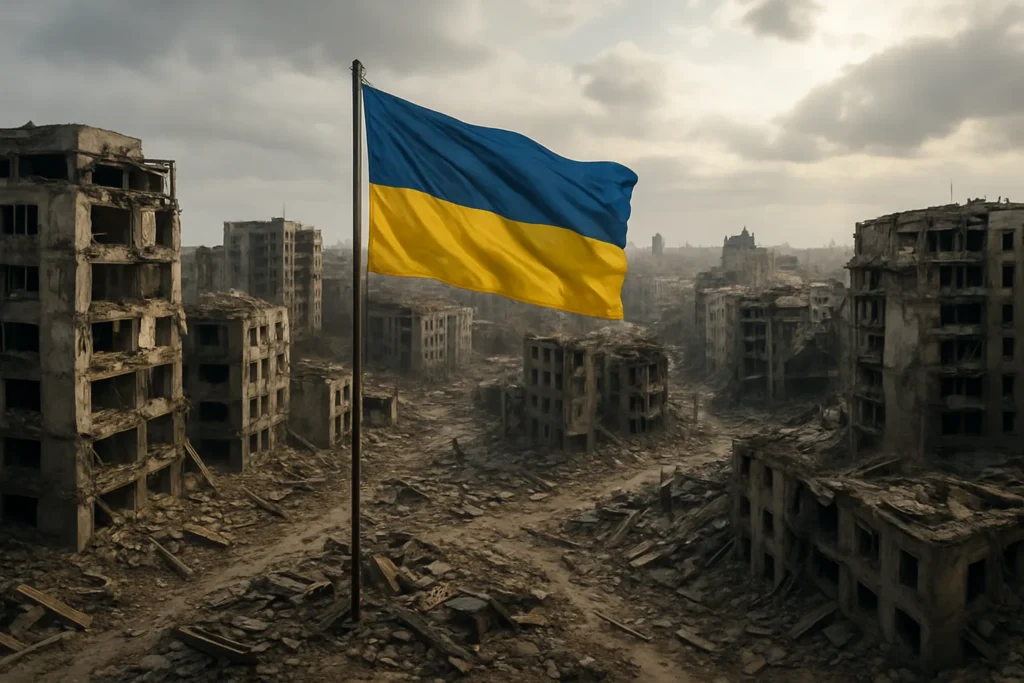The Night Kyiv Changed—and the World Watched
There are nights that redefine the soul of a city. For Kyiv, July 31 was such a night—a relentless barrage of drones and cruise missiles tore through homes, hospitals, and playgrounds as families huddled in basements and shelters. Sixteen lives were lost, including children and a young patrol policewoman who had just begun serving her community; 159 were injured, in what Kyiv Mayor Vitali Klitschko called the city’s highest child casualty count since Russia’s full-scale invasion began. August 1 was swiftly declared a day of mourning.
The sheer scale of the attack was chilling. According to Ukrainian military officials, between 309 and 317 attack drones and eight Iskander-K cruise missiles were unleashed upon the city. In a show of resilience, Ukrainian air defenses intercepted 288 of the unmanned aerial vehicles (UAVs) and three missiles before they could inflict more devastation. Still, the destruction that did reach the ground speaks volumes about a conflict that has escalated beyond proportionality or reason.
Ukraine’s demand for an urgent United Nations Security Council meeting was not just a formality—it was a plea and a warning. Foreign Minister Andrii Sybiha made it clear the world must reckon with what Russian President Vladimir Putin’s latest actions reveal: “Putin rejects peaceful efforts. He wants to prolong this war—not just with bullets and bombs, but with the message that international norms are optional for the powerful.” For average citizens, the violence is no longer distant news. It is knocking down their doors, shattering their sense of safety, and, for many, destroying hope.
Global Responses and Renewed Calls for Accountability
Ordinary Ukrainians are not the only ones hurting. The latest attack reverberated instantly through diplomatic circles. Ukrainian officials swiftly convened an emergency United Nations Security Council meeting for August 1, placing a spotlight on the agenda item: “Maintaining the peace and security of Ukraine.” Whether you believe in the power of international institutions or not, this moment underscores their necessity—and the growing alarm among democracies that impunity, when left unchecked, breeds ever greater atrocities.
For those tired of what feels like endless summits and statements, the stakes have rarely been clearer. Ambassador Linda Thomas-Greenfield, the U.S. representative to the United Nations, echoed this urgency: “The world cannot look away. Russia’s latest escalation should prompt every nation to examine what kind of world order we are allowing to take root if this aggression is left met with silence.”
New pressure is now coming from the United States itself. President Donald Trump—who, despite his transactional approach to foreign policy, has surprised many by pushing for a deal to end the conflict—has reportedly given Russia until August 8 to show tangible steps toward peace. He’s threatened to impose sweeping tariffs, not just on Moscow but also on major backers like China and India, barring an immediate halt to the invasion. While the policy’s sincerity and impact remain to be seen (American economic threats sometimes ring hollow), global chatter alone underscores a rising desire for accountability.
Beyond that, peace talks continue to stall. Secretary of State Marco Rubio and other senior diplomats have described a “total lack of progress” with Moscow, as Putin’s government shows little interest in compromise. This diplomatic paralysis, experts like Harvard’s Timothy Snyder argue, only emboldens authoritarian regimes worldwide, undermining faith in collective security and deterrence.
“The world cannot wait for another tragedy before acting. If the Security Council can’t uphold its founding promise—to protect the vulnerable from the strong—what message are we sending to Kyiv, to Moscow, and to every autocrat watching?”
— Ambassador Linda Thomas-Greenfield, U.S. Representative to the United Nations
The Urgency—and the Limits—of Global Solidarity
The question that now faces each member of the Security Council, and in truth every citizen watching from afar, is whether outrage can actually lead to action. Conservatives, eager to sell a narrative of “peace through strength” or, at times, outright withdrawal, have repeatedly failed to offer solutions that address the root of such aggression. Calls for abandoning Ukraine or letting “strong men” redraw borders are not policies—they are invitations for further chaos. As history has shown, appeasement of naked aggression only leads to more bloodshed: Munich in 1938, Syria in 2013, Eastern Ukraine in 2014.
Real security means more than strong statements or increased sanctions; it demands principled unity and the courage to back words with action. If the world’s leading democracies allow exceptions in the case of Ukraine, who will be safe when the next strongman tests the same boundaries? According to a Pew Research Center survey, a clear majority of Americans, Europeans, and citizens across Asia believe that international law should not be a matter of convenience—especially when children’s lives are hanging in the balance.
A closer look reveals no easy solutions. Russia remains a permanent member of the Security Council, able to veto any resolution. Yet history occasionally records moments when overwhelming global outrage alone forces change. When Nelson Mandela was finally freed from prison in 1990, it was not just legal mandates but years of collective, popular pressure that made his release possible. Ukrainian officials, and citizens everywhere who still believe in the promise of sovereignty and rule of law, are now counting on similar resolve.
What does real solidarity mean in the face of such horror? It’s showing up, speaking out, and not letting cynicism win. It’s insisting, as Foreign Minister Sybiha did, that the international community still “has the power to stop” tyranny—if it chooses to use it.

